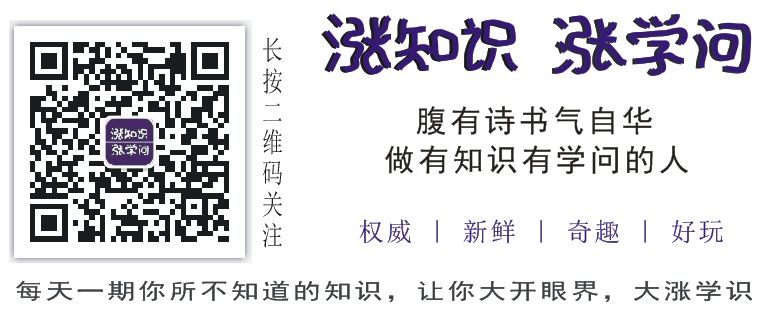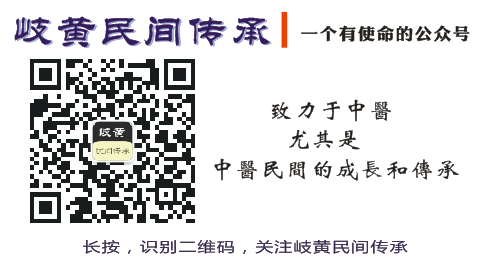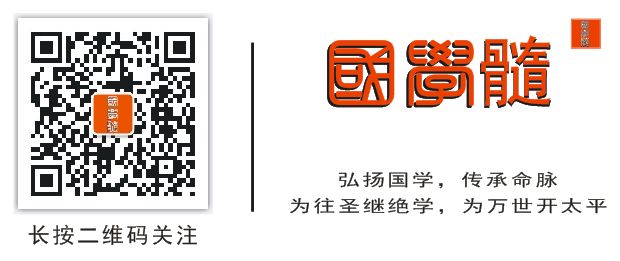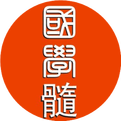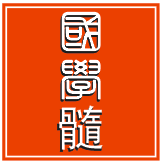
Promoting Traditional Culture, Inheriting the Lifeblood
Continuing the teachings of the sages, opening peace for all generations

The Qi Huang School of Traditional Chinese Medicine holds a crucial and significant position in traditional culture, being an inseparable part of it. Throughout the long river of history, it has condensed the wisdom of the Chinese people, making significant contributions over five thousand years, safeguarding the historical process of various eras, resisting and overcoming disasters, which has allowed the Chinese nation to thrive to this day. In this long historical flow, a vast amount of medical civilization has accumulated and settled, becoming a brilliant pearl. Sharing the Qi Huang School’s medical arts daily aims to inherit and promote it, better benefiting humanity.

Dr. Guo Shikui, a veteran TCM practitioner, has accumulated rich experience in the prevention and treatment of coronary heart disease. He is skilled in using methods such as invigorating blood circulation and removing blood stasis, aromatic warming, and tonifying Qi to treat angina pectoris and myocardial infarction. For moderate to severe angina pectoris, in addition to using decoctions for syndrome differentiation treatment, he often employs granules, which are effective and convenient for patients.The granule prescriptions formulated by Dr. Guo for alleviating angina pectoris are characterized by their unique formulation, which is categorized as follows:1. Invigorating Blood and Removing Stasis GranulesUsed for blood stasis pain. Symptoms include stabbing chest pain, pain with a fixed location, wiry pulse, purple or dark tongue with stasis spots, and a generally robust physique.1. Xuejie San (Dragon’s Blood Powder): 1.5 grams of Xuejie (Dragon’s Blood), taken in two doses.2. Ruyemo San (Frankincense and Myrrh Powder): 1.5 grams of Ruxiang (Frankincense) and 1.5 grams of Mo Yao (Myrrh), ground into powder, mixed well, taken in two doses.3. Ruxiang 1.5 grams, Mo Yao 1.5 grams, Xuejie 1.5 grams, Bing Pian (Borneol) 1.5 grams, ground into powder, taken 1 gram each time.2. Tonifying Qi and Invigorating Blood GranulesUsed for Qi deficiency and blood stasis, with a weak constitution and accompanying chest pain. Symptoms include fatigue, shortness of breath, chest pain, thin or weak pulse, and pale tongue.1. Hongshen Sanqi Fen (Red Ginseng and Notoginseng Powder): Equal parts of Hongshen (Red Ginseng) and Sanqi (Notoginseng), taken 1 gram each time.2. Hongshen Sanqi Xuejie San (Red Ginseng, Notoginseng, and Dragon’s Blood Powder): Equal parts of Hongshen, Sanqi, and Xuejie, taken 1 gram each time.3. Hongshen 1.5 grams, Sanqi 1.5 grams, Hu Po (Amber) 1 gram, mixed well, taken in two doses (for those with Qi deficiency, blood stasis, and insomnia).4. Hongshen Yuanhuo Mo (Red Ginseng and Corydalis Powder): Equal parts of Hongshen and Yuanhuo (Corydalis), taken 3 grams each time.5. Hongshen 1.5 grams, Sanqi 1.5 grams, Yuanhuo 3 grams, mixed well, taken 2 grams each time (the last two formulas are for Qi deficiency, blood phlegm, and Qi stagnation).3. Regulating Qi and Invigorating Blood GranulesUsed for Qi stagnation and blood stasis. Symptoms include chest pain, chest tightness, and a wiry pulse, with a dark tongue or stasis spots.1. Yuanhuo Fen (Corydalis Powder): 3 grams, taken in two doses.2. Guangmuxiang Fen (Wide Wood Fragrance Powder) 1.5 grams, Yuanhuo 1.5 grams, mixed for one day’s dosage, taken in two doses.3. Sanqi Yuanhuo Mo (Notoginseng and Corydalis Powder): 1 gram of Sanqi and 3 grams of Yuanhuo, mixed well, taken in two doses.4. Aromatic Warming GranulesUsed for chest pain caused by cold evil stagnation. Symptoms include chest tightness, severe chest pain that occurs with cold, tight wiry pulse, and thin white tongue coating.1. Dinggui Xiang San (Clove and Cinnamon Powder): 1.5 grams of Dingxiang (Clove), 1 gram of Rougui (Cinnamon), and 0.5 grams of Tanxiang (Sandalwood), ground into powder, taken in two doses for one day’s dosage.2. Chenxiang Fen (Agarwood Powder) 1 gram, Gong Dingxiang Fen (Public Clove Powder) 1 gram, Hu Po 1 gram, mixed for one day’s dosage, taken in three doses (for those with chest tightness and chest pain accompanied by insomnia).5. Warming and Invigorating Blood GranulesUsed for chest pain caused by cold coagulation and blood stasis. Symptoms include chest tightness and stabbing chest pain, with fixed pain that occurs with cold, dark tongue, and thin tongue coating.1. Chenxiang Fen 1 gram, Gong Dingxiang Fen 1 gram, Sanqi Fen 1 gram, Hu Po 1 gram, mixed for one day’s dosage, taken in three doses.2. Chenxiang Fen 0.5 grams, Xuejie Fen 1 gram, Hu Po 0.5 grams, Sanqi Fen 1 gram, Bing Pian Fen 0.5 grams, mixed for one day’s dosage, taken in five doses.6. Warming and Invigorating Blood GranulesUsed for Qi deficiency and blood stasis with cold evil stagnation. Symptoms include fatigue, shortness of breath, chest tightness, chest pain that occurs with cold, wiry pulse, dark tongue, and thin white coating.2 grams of Hongshen powder, 0.5 grams of Chenxiang powder, 1 gram of Xuejie powder, 1 gram of Sanqi powder, 0.5 grams of Hu Po powder, and 0.5 grams of Bing Pian powder, mixed for one day’s dosage, taken in five doses.All of the above granules are taken with warm water in divided doses for one day, and can also be taken temporarily during chest pain attacks for pain relief.7. InsightsThe use of Chinese herbal granules for treating angina pectoris has advantages such as small dosage, ease of preparation, convenience of administration, and rapid pain relief, making it popular among patients and of practical value, worthy of promotion.Dr. Guo’s granule prescriptions for treating angina pectoris reflect the principle of syndrome differentiation and treatment. As stated in the “Su Wen: Bi Lun”: “Heart obstruction leads to blocked pulse,” Dr. Guo believes that the direct causes of true heart pain and obstructed heart pain are the blockage of blood vessels, which leads to pain. Therefore, he emphasizes invigorating blood circulation and removing stasis to treat heart pain, which is fundamental to the treatment.All the aforementioned granules essentially embody the principle of invigorating blood and relieving pain.Moreover, since blood “congeals when cold and flows when warm,” Dr. Guo also places great importance on the role of aromatic warming in alleviating angina pectoris, considering it a key aspect of treatment.Dr. Guo’s various granule prescriptions pay close attention to the relationship between Qi and blood, as “when Qi moves, blood moves; when Qi stagnates, blood stagnates.” Thus, regulating Qi helps invigorate blood, leading to the creation of regulating Qi and invigorating blood granules; and since “Qi is the commander of blood,” Qi deficiency leads to blood stasis, hence the creation of tonifying Qi and invigorating blood granules; and because “cold Qi leads to blood coagulation, warm Qi leads to blood flow,” warming and invigorating blood granules are also formulated.In summary, although most granule prescriptions are concise, they are rigorously formulated, addressing both the root and the branch, with small dosages yet remarkable efficacy.Follow the Guoxue Sui public account for more content.
| I Copyright Statement:○The content of this article is sourced and compiled from the internet.○Copyright belongs to the relevant rights holders. If there is any improper use, please contact us for immediate deletion.I Submission Email:[email protected] |
I Warning:All articles published on this platform are for the purpose of popularizing TCM knowledge and are for reference and learning by professional TCM practitioners only. They do not constitute any prescriptions, recommendations, or guidance. Please do not blindly try medications; this platform does not bear any responsibility for any consequences arising from this. If needed, please use under the guidance of a physician. All articles published on this platform only represent the author’s views.Recommended Reading【Guoxue Sui】Selected exquisite articles from the public account:① Traditional Chinese Painting: Step-by-step guide to painting the “Cockscomb Flower and Longhorn Beetle”② From reproductive love to immortal romance, the mysteries of bedroom arts—Exploring the principles of “Fengshen Yanyi” (Part 2)③ Zhu You’s technique: The secret of soul retrieval【Knowledge and Learning】Selected exquisite articles from the public account:① The Qin Dynasty had the “Four Great Legions” to unify China; what was the final destination of the legion that swept across the world?② This woman had “the talent of Lü Bu but none of his evil”, ruling from behind the curtain, her life was quite legendary.③ Chiang Kai-shek’s slap created an image of a “just and fair” figure, but why did he not dare to strike?【Qi Huang Folk Inheritance】Selected exquisite articles from the public account:① The miraculous folk method of transferring sores and diseases, moving serious sores and tumors to less important areas—Clinical application of the method of transferring sores and diseases.② Difficulty falling asleep, many dreams, shallow sleep, waking easily, waking at set times, and sleeplessness—Professor Xu Hao’s experience in diagnosing and treating insomnia.③ The Lin family has over a hundred years of experience in treating bones: Lin Ruga’s treatment of fractures in 188 cases with a bone-repairing pill.④ Irregular sexual life leading to premature ejaculation—Professor Li Yueqing’s clinical experience in treating male diseases combined with anxiety and depression.⑤ Introduction to an ancient secret formula—Da Cheng Dan Fang.⑥ Phlegm-dissolving and mass-reducing formula for treating gastric cancer, intestinal cancer, esophageal cancer, and other digestive tract tumors and other malignant tumors.⑦ Self-formulated Zhenxiong Decoction for treating 76 cases of impotence, harmonizing Yin and Yang, addressing both deficiency and excess, a wonderful remedy for simultaneous tonification and purging.⑧ Yijing Quanzhuan Decoction for treating infertility, impotence, premature ejaculation, lumbar and knee soreness, fatigue, and other conditions—Professor Wang Jinsong’s clinical insights.For more exciting and excellent content, please check the historical articles.